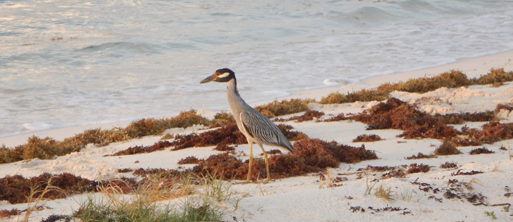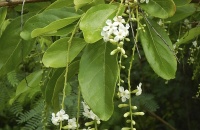DAILY LIFE: WHAT SHOULD WE DO NOW?
Dear fellow Caymanians and residents. Let us press our government to take these steps to reduce carbon emissions from our small but successful country, and
THEREBY LET US IMPROVE OUR DAILY LIVES

BURNING An outright ban on all outdoor fires.
There are no downsides to this proposal. It would get us out of the slash-and-burn mode of agriculture. It would force us to develop organized mulching, a big benefit in our soil-deprived islands. It would clean up the air we burn. This move alone would contribute significantly to bringing us towards 1990 levels of CO2 emissions.
A procedure for temporary licenses to burn could be worked out. But basically, nobody needs to burn.
Q: What is the carbon reduction that would be delivered by an outright ban on burning? It would definitely improve the air we breathe. Isn’t that important enough?
CYCLING-FRIENDLY/ PEDESTRIAN-FRIENDLY ISLANDS WITHOUT CLEARING ANY MORE TREES, pathways can be created especially for walking and biking. Surely walking is a basic human right far ahead of the “right” to drive a car. Less driving could take us well back towards 1990 levels of emissions. One easy method would be to create pedestrian malls, with auto traffic banned or restricted to certain hours. All people living within a 3 mile radius of their place of work should be walking or cycling to work, or ride-sharing. Other creative modes might include park-and-walk depots (inexpensive car parking — walk from there to work).
Q: What would be the carbon reduction if even 5% fewer trips were accomplished without automobiles, or by pooling or using easy bus systems, or by living close to work?
DARK SKY NIGHTS Basically, streets should be dark but pedestrians and cyclists should be lit up. You’d get electricity savings,improved star-gazing, perhaps improved romance too. This goes beyond shielded lighting (which we don’t seem to have anyway) — it goes towards no lighting. Lighting is a scam anyway — light up the night and we’ll have less crime? WRONG
Q: What would be the savings in pollution if the power company lit up 10% fewer streetlights than they do now? Or should we go for 20% or 50% (every second light pole) and make the night skies feel cooler, gentler and more like olden times, right away? What about lights out at midnight, resuming at 4 AM? Couldn’t you handle it?
POPULATION CONTROL Let’s take the Cayman Islands to a whole previous level. How about working our way back to the population numbers of 1990? No true abatement of pollution will happen on this globe unless the population bomb is de-fused. It’s easier to do it here than in other places, because it would not require any imposition of one-child or other severe policies. It would only require setting targets, obviating the need for new housing developments. Organizations would have to train people in effective business methods – more work from fewer people. Productivity! Otherwise we are just running around the squirrel cage of unrelenting population growth. Let’s work on our Gross Happiness Index, not our Gross Domestic Product.
Q: Someone says we need 75,000 people, up from 55,000. Ridiculous. What is the saving if we do NOT do this? What is the saving if we cut back (gradually) to the 1990 population figure for the Cayman Islands? Who wants to pave the whole island anyway?
NATURAL FORESTS The best contribution to a lower carbon footprint is to stop cutting our trees and forests — to dedicate MOST of our three islands to natural forest, “the ultimate adaptive system”, which is the foundation of everything else we have — life itself. PERMANENT PROTECTION of existing forest and bush is the best policy, but another is “re-wilding” — allowing nature to take over some of the horrid scars on our landscape such as abandoned quarries.
Q: What is the oxygen benefit of reverting to the 1990 percentages of natural cover, for the three islands?
These are just a few practical things we can put forward as commitments now. They are steps to a better life and a contribution – especially by example – towards reigning in climate change which threatens low, island nations most of all.
Some of these actions are easy. An outright ban on burning would require one piece of legislation (someone says it’s on the books now) together with a period of education in less harmful methods of doing whatever burning supposedly “accomplishes” for us. It would require a vigorous enforcement regime, involving fire and police departments — perhaps “spotters” too. The people will be drawn along so that, in the end, little enforcement will be necessary. Who would wish to flout a wise law, one that brings only benefits? This is the way smoking was curbed, this is the way seat belts got worn, and this is the way nesting turtles came to be admired instead of ravaged while doing what they’ve been doing for a million years.
All of the above steps are helpful; all are needed to preserve health, welfare, continuity, peace and good order … perhaps our continued existence, in our verdant isles.
JWP June 28, 2015
PS In November and December 2015 all the world’s governments will meet in Paris and bring their commitments to reducing the heavy load we have placed on the carrying capacity of the earth and its atmosphere. China and the USA and about 40 countries have stepped up to the plate early. Pope Francis issued an encyclical on the topic. We know that these are worthy steps, that “development” for us can mean things like education, health and social order, not just giant, smoking machines digging holes, laying concrete, glass and asphalt and ruining our land, sea and air.
The United Kingdom will be there. We have time to assist it by formulating and putting forward our own, Caymanian commitments to put into effect here and now.The globe is big, but we need these changes anyway, for ourselves. Look at the photos, and choose what kind of future we will have.

